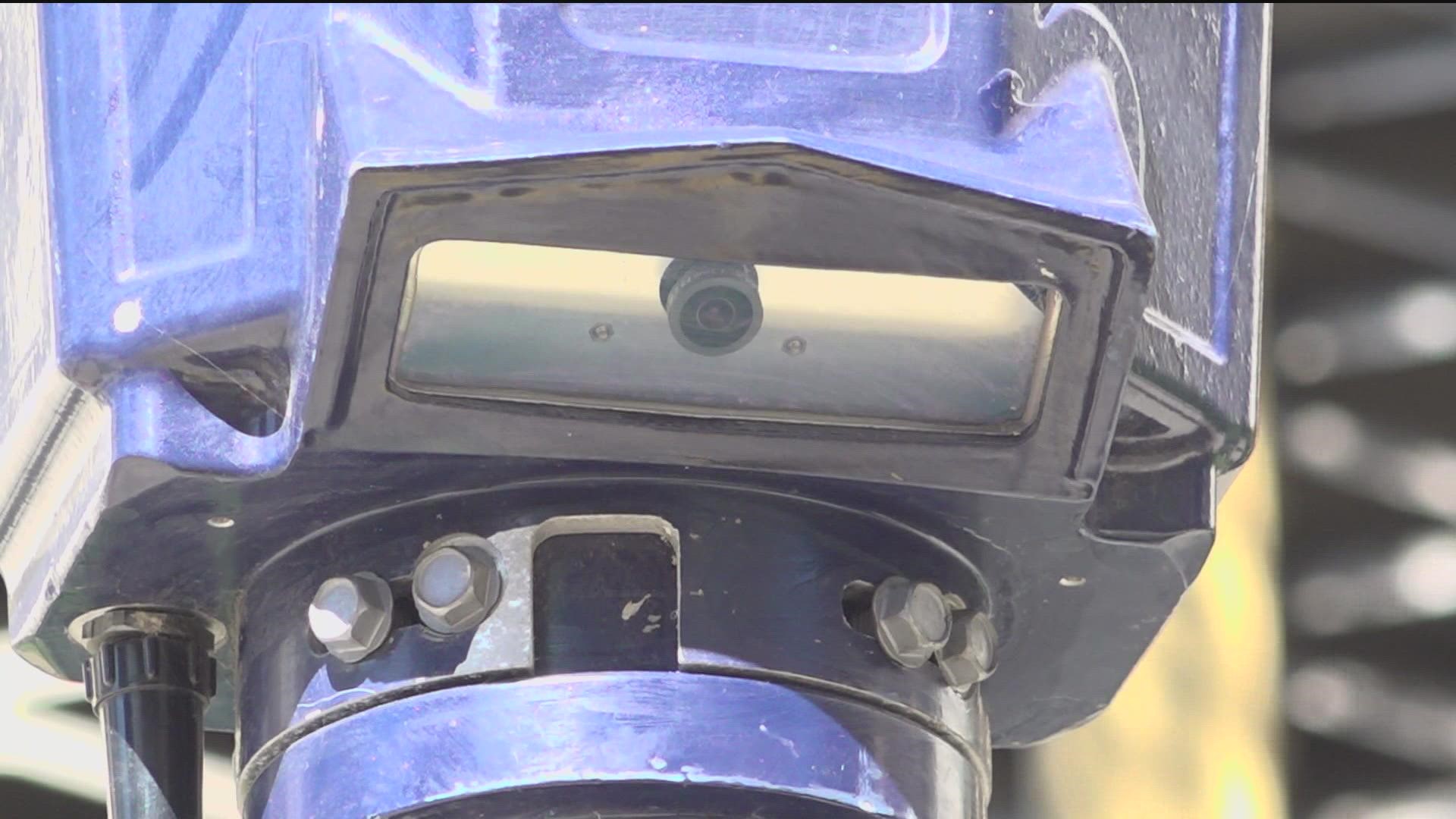SAN DIEGO — When the city of San Diego installed more than 3,000 "smart street lights" back in 2016, equipped with cameras capturing video in real-time, their original purpose was far different than what it eventually became, leading to a contentious battle between public safety and civil liberties.
"We are installing thousands of smart streetlights throughout the entire city," said former Mayor Kevin Faulconer as he unveiled the $30 million Smart Streetlight program six years ago. At that point, it was meant to monitor traffic patterns.
"It is going to make parking, traffic, and city infrastructure smarter," he promised.
While this technology was ultimately never used for that, San Diego Police found a new purpose.
"They've been incredibly valuable for the police department," said Sgt. Jared Wilson, president of the San Diego Police Officers Association (POA). He said the surveillance video captured by these streetlights has proved crucial in solving several violent crimes, including the deadly shooting at a Church's Chicken in 2019.
"Smart street lights solved that case," he added.
While this technology has been a valuable resource for police, it has also blindsided many community members.
"All of this technology was rolled out, and community members had no idea about it," said Genevieve Jones-Wright, a former public defender and the founder of TRUST San Diego (Transparent and Responsible Use of Surveillance Technology), a coalition made up of more than 30 local community organizations formed in response to this lack of notice.
San Diego City Council President Pro Tem Monica Montgomery-Steppe agrees.
"The issue was that there was no transparency and accountability up front when that purchase was made," said Montgomery-Steppe. While she didn't sit on the council when the intelligent street lights were purchased, she said she understands why so many San Diegans were alarmed to learn about them.
"We have a history in this nation where we surveil low-income communities more than other communities, so there is always a heightened concern when you hear about cameras in streetlights that you had no idea about," she told CBS 8.
"There were absolutely no rules in place," added Jones-Wright. "There was no oversight, no accountability."
In response to these concerns, the city decided in 2020 to cut direct access to the video being captured by these streetlights, providing time to work on sweeping new regulations to oversee all surveillance technologies used by all city departments, including the police. Those new rules were passed by City Council in August.
"We have a process set so that we balance people's privacy rights with what we are doing, acquiring as a city," Montgomery-Steppe said.
Under this process, which TRUST SD helped create, police and other departments must now document and report all surveillance technology they use and hold in-person meetings with the communities where they'll be used.
Also, a special nine-person volunteer Privacy Advisory Board, appointed by the mayor and approved by the city council, will include community members and experts in law, civil rights, and high-tech security. Its role will be to vet these surveillance tools.
"Ask the tough questions," Jones-Wright said. "Make the recommendations to the city council."
It will then be up to the city council to sign off on the specific tools being adopted.
Montgomery-Steppe said that she recognizes the use of technology as an investigative tool.
"We don't necessarily want to prohibit that," she said. "We want to ensure that we know what we are getting into."
"We are not opposed to oversight and how they're used," Wilson of the San Diego POA said. "We do not want to become a surveillance state or anything like that."
However, the San Diego Police Officers Association has concerns over how this work required under the surveillance ordinance, which must be completed in the next ten months, will be completed in time.
"The surveillance ordinance is highly problematic because it adds massive bureaucracy to what we do," Wilson told CBS 8.
Wilson said that thousands of hours will be needed to meet the new law's requirements, calling it an "unfunded mandate."
"We are going to be taking officers off the street to get this done: there is no extra funding for it, no extra positions," he added. "Public safety will suffer as a result of this."
Privacy advocates, though, dismiss those concerns as 'overblown.'
"I honestly don't think it's going to be a burden on their resources at all," Jones-Wright said. "And I think they should welcome being at community meetings and participating. This is what democracy is all about."
The Police Officers Association said that access to these technologies, from body-worn cameras to high-tech forensic tools, is critical to combating crime.
"We can't afford to have those technologies turned off in many cases," Wilson said.
"If there are issues, my door is open," Montgomery-Steppe responded, adding that the city and police need to work together as the process moves forward.
"But the community deserves transparency, and I think this is the least we can ask," she told CBS 8.
One notable exception under this new city-wide surveillance ordinance: police officers working on federal task forces are exempt from oversight.
City departments have until September 10 of next year to go through the process to gain council approval for the surveillance tools they are currently using.
WATCH RELATED: Man convicted in fatal Otay Mesa Church's Chicken shooting sentenced to 146 years to life (2021)

